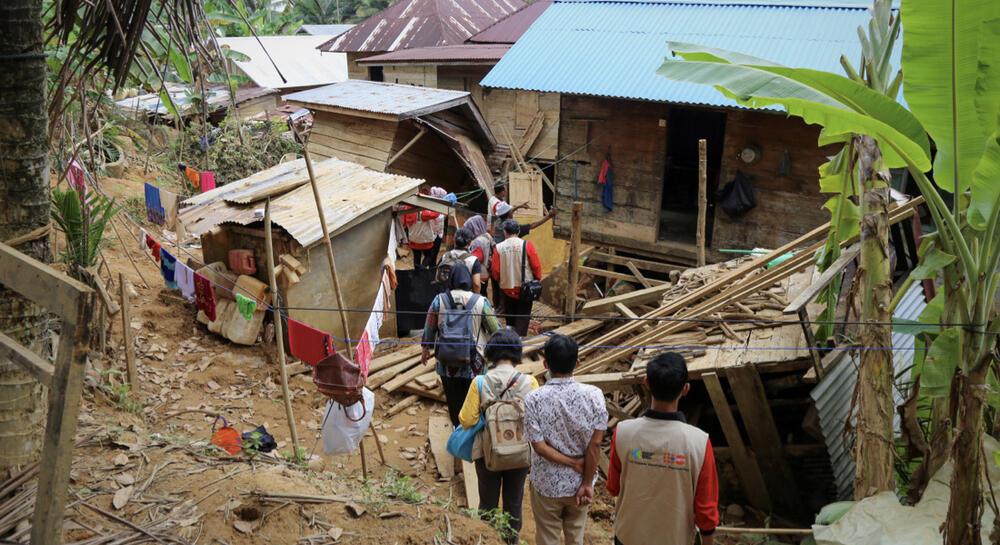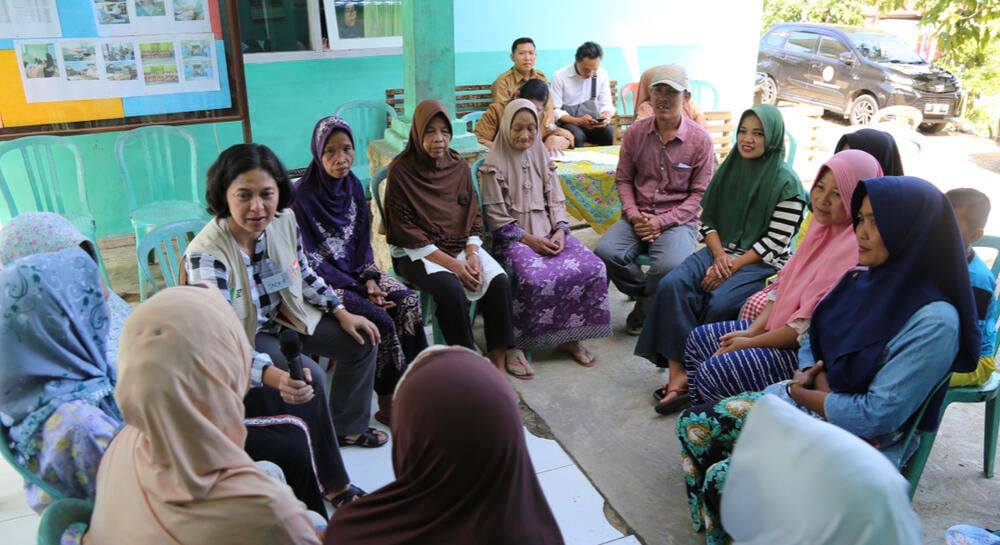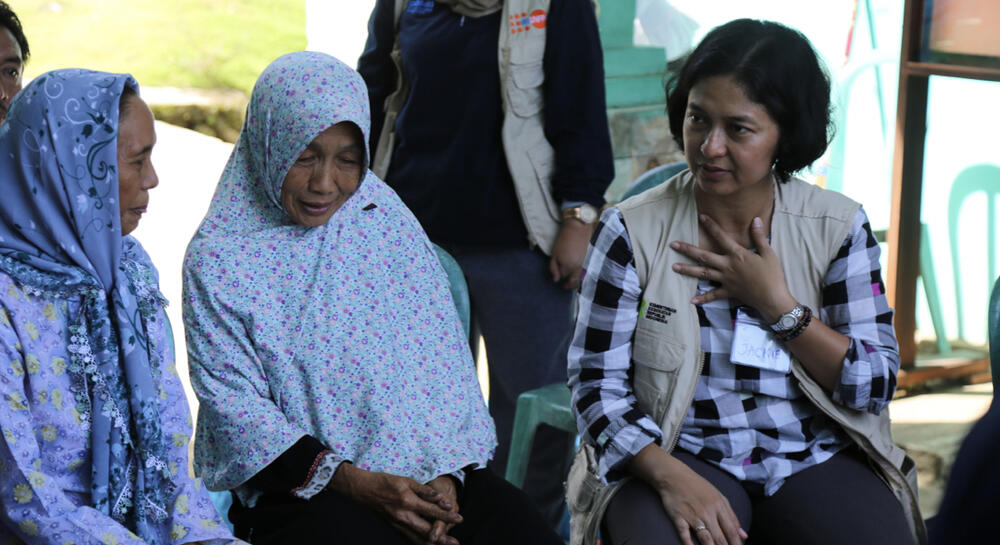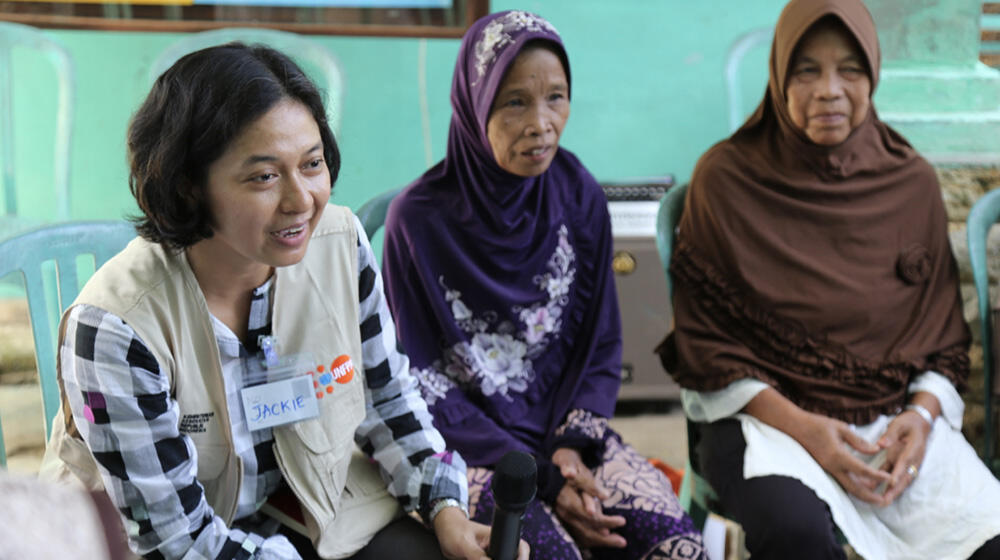Jackie is a psychologist, counselor and experienced humanitarian with Yayasan Pulih, a non-government organization that works on mental health and psychosocial support in Indonesia. “We are focused on the issue of violence and trauma recovery which also includes gender-based violence in development settings and in emergency and conflict settings," Jackie says. “We advocate the issue of the importance of psychological healing and recovery for people who have experienced disasters, especially survivors of gender-based violence.”

She says the high number of disasters in Indonesia increases the risk of gender-based violence. “We support the health workers with psychosocial support because they are affected by the emergency. Health workers like midwives need mental health support so that they can provide that quality care to survivors of gender-based violence.”
"Health workers like midwives need mental health support so that they can provide that quality care to survivors of gender-based violence.”
Jackie works with midwives and gender-based violence frontline responders. “They are coming from the community; they are affected by the disaster. With their social status as midwives they have more responsibility in the community to respond to these issues.”
She says mental health and psychosocial support in disasters strengthens the overall resilience of the community. “It is really important because it will affect how they work and affect the quality of the services they provide to the other patients or survivors.”

Jackie was involved in adapting global guidelines on gender-based violence and the minimum initial service package (MISP) for reproductive health in crises into the Indonesian context. One of the tools that Yayasan Pulih uses is a cash and voucher assistance (CVA) program.
“Cash and vouchers have been acknowledged as a good practice in several countries,” Jackie says. “A big earthquake in Cianjur in 2022 was where CVA started to be implemented in Indonesia. The innovation is actually for supporting gender-based violence survivors: it's intended to strengthen gender-based violence case management in situations like disaster or a crisis.”

As an experienced humanitarian Jackie was involved in developing the standard operating procedure (SOP). “It's critical to provide cash to survivors, but the issue is to avoid higher risk for them to become a victim because they have these resources.”
She says the pandemic caused a major shift in the conversation about mental health in disasters. “COVID-19 changed the whole paradigm,” Jackie says. “Not just as a practitioner, but globally, on how to provide mental health support in an emergency. Clinical work is needed but that is not sufficient; we need a broader perspective on how to frame mental health as a public health issue. This is an important shift of paradigm informing changes in practice and programs on how mental health and psychosocial support is integrated in disaster response and in other sectors.”
"We need a broader perspective on how to frame mental health as a public health issue."
As part of her intersectional approach, Jackie works also on gender-based violence prevention programs. “Prevention is acknowledging the root causes and trying to change them,” she says. “It's long-term work and the goal is to change norms. Psychology can contribute a lot in changing behavior of a person and a society. Our prevention program activities address changing gender norms, and we call it gender transformation program.”
Jackie says for Indonesia in disasters and development settings, “mental health is still not the highest priority. It needs to be getting more attention. Despite the progress in providing mental health and psychosocial support (MHPSS) for Midwives and gender-based violence frontline responders, Jackie admits that humanitarians as a whole need more mental health support. “As a humanitarian worker, you need to be ready anytime, there are just not sufficient programs to support humanitarian workers. Support is important for any humanitarian worker and that must be put in place."


